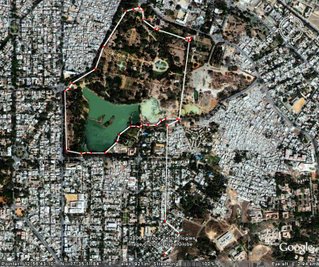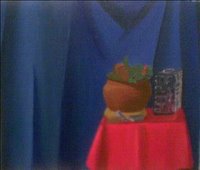When something negative happens, we talk about it. It catches our attention and everyone else’s. We talk about it. When things go right no one talks about it.
This phenomenon makes superstitions grow. If someone makes a wild prediction and it comes true all those who heard it, talk about it. If it does not, no one talks about it.
We form opinions based on such phenomenon. We do not consider many of our own opinions to be superstitions but they often are. Some such ‘superstitions’ are: “all auto drivers are cheats” or “the police are heartless” or “government officials are inefficient and don’t take initiatives”, and many others.
Here are some of my experiences that contradict these superstitions.
Auto drivers:
About twelve years ago, when my sons were still very young, my wife and I took them out in the evening. We came back home in an auto. After the auto was paid off and had left we realised that we had left one of our handbags in the auto. My wife was very upset. The bag did not have anything of great value but a loss always upsets. For whatever it was worth, I went and complained to the police. The officer did not think that there was a need to register a complaint as I admitted that it was my mistake. (As a sidelight, the officer was none other than Shakeel Ahmed, who was later ambushed and killed by the dreaded Veerappan.)
I returned home and told my wife that I felt that the auto driver would come back and return the bag. She asked me how I knew but I refused to reveal it. I was disappointed that that night the auto did not come back. However, early the next morning, the auto came and stopped in front of my house and out came the driver holding our “given up as a lost case” bag. I was so happy! Not because the return of the prodigal bag but of the auto driver who was contrary to the superstition.
His explanation was: He had a couple of more fares after us the previous night. After that he went home and parked the auto. When he was cleaning the auto that morning he found the bag in the back of the passenger seat. He recalled that we were the only ones with children in our arms and deduced that the bag must belong to us and promptly came home to restore it.
When I tried to give him some money, he refused. I had to convince him that I was not paying him for his good deed but just for the cost of the drive from his home to mine and back. Only then did he accept the ‘fare’.
Now, how did I ‘know’ that he would come back? I had observed the previous evening that there was an inscription on the back of the driver’s seat, which declared: “half fare for pregnant women on their way to the hospital for delivery and for very old and feeble people”. It does not take a genius to hope that he would be back, would it?
Once an auto driver did not have change for a hundred when the meter read 55 and he was ready to forego the 5 and gave me a 50! Once a meter showed 67, whereas the normal fare for the same trip was around 55. When I mentioned it to the driver he quickly said, if you do this trip regularly, give me just 55. I will have my meter checked!
The police story:
I once received a notice from the traffic police. My offence? Carrying two on the pillion of my scooter. It was obviously wrong, as I have never ever done that in my life.
So, I went to the police station and found the officer in charge was a sub-inspector (SI). He looked as if he did not know any English. So I spoke to him in chaste Kannada, hoping that I would not put him off by talking to him in English, and told him my side story. He listened carefully and thought for a moment and said, in impeccable English let me add, “I see. I am ready to take your story at its face value. But, once the complaint has been registered and the notice has been sent to you, I am powerless. The only officer allowed to withdraw it is a deputy commissioner (DCP). You could meet him, if you want”.
I was deflated but decided to meet DCP. In fact it would have been easier and cheaper for me to pay the fine and be done with it. Something in me refused. So for the next few days, I went to the DCP’s office in the evenings, after work, but never found him there. He was always busy on his rounds - after working hours.
I decided to go and meet the SI and tell him of my plight. When I did go there, to my luck, the DCP was there. As per police protocol the DCP was sitting in the SI’s chair. I decided to wait patiently. However the DCP saw me and asked the SI who I was and what I was doing there. He apprised the DCP of my story. Then the DCP called me inside, offered me a seat and listened to my story. He too told me that he believed me but wondered if it was right to let me off without any further proof.
Then I revealed my trump card.
What had happened was that on one of my visits to the police station, the SI was away and the constable with whom I made enquiries tried to dismiss me. “What do you mean – ‘I did not do it’? It was I who booked you, look here.” He showed me his notebook. It showed my vehicle number and in brackets ‘Yezdi motorbike’ – triple riding. I had not said anything to him then.
I told the DCP, “If you assure me that you will not take action on anyone I will give you the proof”. With an amused smile he agreed. Then I told him about the constable, his notebook and the entry therein. And then I showed him my Bajaj Super scooter parked in front of the police station. He immediately let me go.
He said, “OK, I will write on the notice that you have been warned and let off”. I protested that since I had not erred it would be unfair. He was very indulgent and said “Alright. You don’t know what I am writing on this. OK? You can go”!
That was the end of the matter and I had had a long interaction with the police and each one of them had behaved in an exemplary fashion.
The Bank Manager:
Recently I had to pay some fees at what is known as the treasury branch of the State Bank of Mysore. As I expected that there would be many people at the bank for this very purpose, I went there an hour earlier than the banking time. Apparently many others had had the same idea and there was already a queue of about ten people. Within fifteen minutes the queue had swelled to more than fifty.
The manager of the bank arrived and saw the crowd. He immediately swung into action and organised three counters to be opened and with some colleagues who had come in early, arranged for the fees to be collected and receipts issued. He manned one of the counters himself. He was not very familiar with this operation but learnt it from one of the juniors and the queue almost disappeared by the time the bank’s official opening time approached.
The Electricity Bill
Due to some errors by me and thorough goof up by the electricity provider, I had to resolve some issues with them concerning my bills. I went to their office at 9:30 in the morning only to learn that it opened only at 10:30. As I was leaving, the manager walked in. Looking at my crestfallen face, asked me what I wanted. I asked him if it was OK to take his time when the office was not even officially open. He told me that he always came to the office as early as possible so that he could help people solve their problems before they went to work!
He proceeded to listen to all I had to tell him, agreed with me that the department had goofed up and asked me to return in a few days, for him to sort out the problems. When I returned after a few days, I found that he had been as good as his word and had left instructions as to how to resolve the issue and my problem was solved without further ado.
A very refreshing experience, to say the least!
What do all these stories mean? Many things to many people, I am sure. One thing it does mean to me is that we need not look at the world with jaundiced eyes. It does not mean that we should look at the world with rose tinted glasses either. Keep your mind and eye open. They work best that way, like a parachute, to borrow a phrase!





